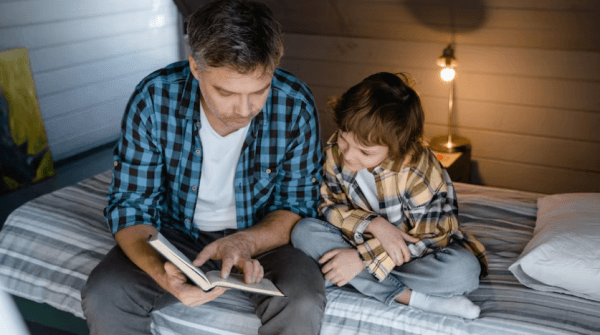Why children don’t speak up when they have been sexually abused
August 4, 2023 · By Lexy Hamilton-Smith for www.abc.net.au

Parents can help by teaching their children about consent and their body.(Pexels: Mart Production)
Why children don’t speak up when they have been sexually abused
As few as 0.2 per cent of child sex abuse victims in Australia speak out, with most staying silent out of fear, guilt, shame or confusion, the head of child protection group Act for Kids says.
CEO Katrina Lines said some may even not know that what has happened to them is not OK, or may be too young to know that the abuse is not appropriate.
“We need to teach them about consent,” she said.
“Because [children] do not have the language or even the understanding that people touching their bodies in a particular way is wrong.
“They can feel ashamed to tell or are confused because the offender is someone they know and trust.”
Dr Lines said children may have also been threatened, “told to keep silent or someone in their family will get hurt, or been offered lollies and toys as long as they kept quiet about what was going on”.
None of the alleged victims complained to the police in the case of a Brisbane childcare worker who now faces more than 1,600 charges, including 136 for rape.
Dr Lines could not comment on the arrest but she urged parents to understand a child is never too young to start being taught consent about touching of their body parts.
Talking to children about consent and their bodies
Research commissioned by Act for Kids in 2021 showed parents were often uncomfortable talking to young children about sex, consent and their bodies.
She said the study found the majority of Australian adults — 55 per cent — believed it was only appropriate to start teaching children about consent and their body after school age, leaving children aged under four vulnerable to sexual abuse.
Dr Lines said they also found less than half of Australian parents, carers and grandparents (44 per cent) had been open with their kids about consent and their body, despite 89 per cent of adults saying it is the parents’ responsibility.
“So there is something stopping us as parents, giving kids these skills, and empowering them to let us know when something happens to them,” she said.
“We want to keep them in a bubble protect them, a lot of parents do not think sex is something you need to learn about until you are over the age where it is part of life you have to consider.
“But sexual development is a normal process for all human beings and speaking to kids openly and honestly in an age-appropriate way from when they are really little, teaching them about private and public parts, using correct names is important.
“So they can understand what is OK touch and not OK touch.”
The research also found only 29 per cent of parents, carers and grandparents said the words vagina and penis – the correct anatomical names — were normal in their child’s vocabulary.
Dr Lines said more than a third of parents (36 per cent) with children under the age of 18 doubt their child understood what consent means.
And 69 per cent of respondents believed adults should not ask children for permission before touching them.
QUT researcher Dr Ben Mathews led the nation’s biggest study into child maltreatment, which also looked at non-disclosure of child sexual abuse.
His decades of work have been informed by the silencing of children who are sexually abused.
“Children are more likely to tell someone about their abuse if they are older, the offender is a stranger and they have a trusted confidante,” Dr Mathews said.
“However in many cases, a child would not be able to tell anyone about their experience, and this silence may endure for years, for decades, sometimes forever.”
He said a review of studies found 60 to 70 per cent of adult survivors of child sexual abuse said they kept it a secret throughout their childhood.
“Shame, self-blame, threats and fear are uniformly shown to be deterrents to disclosure,” he said.
Talk about sex, consent and bodies
Act for Kids runs a ‘Get Comfy’ campaign which focuses on teaching children about consent.
“We have learned an awful lot in the last 15 years and the royal commission into child sex abuse told us a lot about what we should be doing,” Dr Lines said.
The campaign advises parents to:
- Keep conversations open and age appropriate
- Use the correct words for body parts
- Answer questions in a calm, casual manner
- Ask your child what they already know so you can ensure they have the appropriate information
- Chat regularly, rather than having ‘the talk’
- Explain the importance of consent, especially in a sexual context – ‘yes’ means yes, ‘no’ means no, and ‘maybe’ means no
- Cover a range of topics like sexting, sexual preferences, pleasure not just sex, puberty, pregnancy and safe sex practices
- Remind your child they can always ask you questions and talk to you
Understanding how grooming happens
Dr Lines said perpetrators not only groom children, but also adults.
“Often they are a well-liked employee, they are usually great with kids, they might bring presents, all those kinds of things to create trust with other adults so they can get access to the children,” she said.
“We need to empower children and workers with knowledge and skills to speak up if they are worried about something.
“So if everybody understands what grooming is, what the signs of abuse are and how they might have a shared language to speak up and get help, then that creates better outcomes.”






